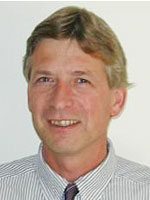Forum 2012 aims to prioritise local solutions to local problems…
 Building on the achievements of the Global Forum for Health Research, we as The COHRED Group are proud to take up the challenge of pursuing the organisation of the well-known and respected Global Forum for Health Research meetings. The next meeting will be held in Cape Town (South Africa), from the 24th to the 26th of April, in collaboration with the Department of Science and Technology of South Africa, under the theme ‘Beyond Aid…Research and Innovation as key drivers for Health, Equity and Development’.
Building on the achievements of the Global Forum for Health Research, we as The COHRED Group are proud to take up the challenge of pursuing the organisation of the well-known and respected Global Forum for Health Research meetings. The next meeting will be held in Cape Town (South Africa), from the 24th to the 26th of April, in collaboration with the Department of Science and Technology of South Africa, under the theme ‘Beyond Aid…Research and Innovation as key drivers for Health, Equity and Development’.
The Forum will examine the prospects for a new vision of development that looks ‘beyond aid’, by focusing on developing capacities in low-and middle-income countries and emerging economies. In doing this, the Forum will also investigate how:
- research can be used to create relevant and applicable knowledge
- technology can be used to transform knowledge into practical solutions and
- how innovations can be used for the scaling up of initiatives and processes that can enhance health, equity and development.
For the above to happen, the Forum will bring together more than 300 participants from research institutions, business, social enterprises, civil society organisations, governments, international organisations, funders and media. The Forum will bring together the world’s change makers – from the South and the North – thereby creating an avenue through which they can develop equal partnerships toward effecting positive change for global health.
The annual Forum meetings have been important in raising awareness on the importance of research in informing policy decision-making and programme implementation in the health sector. They have also been crucial in drawing the attention and support of politicians towards key emerging and previously neglected issues.
We are aware of the health research related problems that many people in the world are grappling with, and these problems constitute an impediment to socio-economic development. The information that comes out of our Forum meetings has helped us to identify some of the equity gaps in the provision of basic services.
As some of you might be aware, many of the problems that impact on health have their origins in sectors other than health. This is the main point of the rationale behind the consensus consolidated in Bamako (Mali) in 2008, to agree on the designation ‘Research for Health’ within a context that promotes inputs from different sectors. Now, we need to go further, and move towards the establishment of collaborative mechanisms between research institutions in the health sector with those from other sectors. Finding solutions for the problems is everyone’s task. The new series of meetings which will start with the Forum 2012 will help in driving the message home – and eventually contribute towards improved coordination between the various constituents at the national, regional and global levels.
Forum 2012 will take on a new approach to the Forum meetings – in as far as it will act as a platform for the participants to exchange ideas engage on evidence from their research and come up with solutions to problems in a dynamic and interactive way. In line with the Forum theme, the focus will be on how to build from the evidence and capitalise on the recent advances in technology as an avenue for generating innovative solutions that are effective and sustainable.
As part of a process of including a multiplicity and diversity of voices in the Forum we are working to see that we have participants from different constituencies, so that we can have in one room a combination of experiences and skills to facilitate the Forum process. We believe that this is the way forward – in forming partnerships that can harness the best out of different groups in order to bring about change. Change that is driven by home-grown needs and solutions that are then adapted to the local context.
“Beyond Aid” is the overarching message for Forum 2012 – the idea is to focus on the country processes, particularly the institutional capacity building and the quality of human resources that can act as building blocks towards a development approach that looks at aid and beyond.
Aid is important and necessary, but to really be effective, it has to act as a lever that helps countries to ‘stand on their own feet’ with the ability to drive their own development. The message is that we need to be innovative in finding solutions that are relevant to the countries’ context.
We invite all the participants to approach the Forum within this context, so that we can make the Cape Town gathering an important reference point for moving forward on a new way of doing business – thereby making the most from the existing evidence from research. Research is for the good of the people and people need solutions to problems in order to make their lives better.
